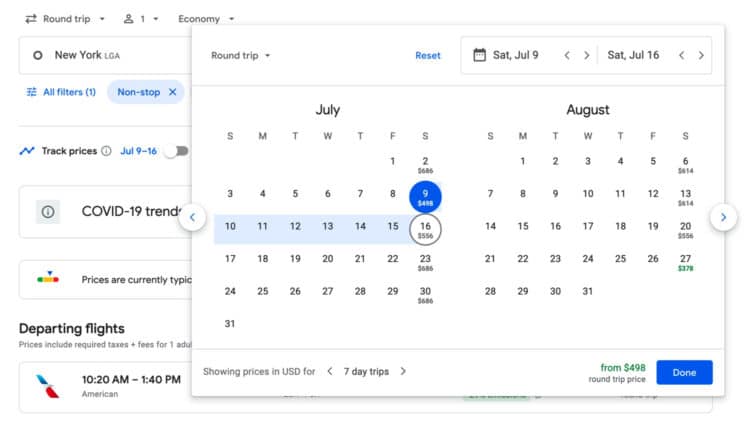The Ultimate Guide To Country Living: Your Escape Awaits

Table of Contents
Finding the Perfect Country Property
Finding the right property is the cornerstone of a successful transition to country living. Several crucial factors need careful consideration.
Location, Location, Location
Choosing the right location is paramount. While the picturesque views are tempting, practicalities must also be addressed.
- Proximity to Amenities: How far are you willing to travel for groceries, healthcare, and other essential services?
- Commute Time: If you have a job that requires commuting, factor in travel time and potential traffic delays, especially during inclement weather.
- School Districts: If you have children, research local schools and their reputations.
- Internet Access: Reliable high-speed internet is crucial in today's world, even in the countryside. Check availability and speeds before committing to a property.
- Local Community Feel: Visit potential areas at different times of day to gauge the community atmosphere.
- Crime Rates: Research local crime statistics to ensure your safety and peace of mind.
- Property Taxes: Rural property taxes can vary significantly; understand the implications for your budget.
- Access to Healthcare: Evaluate the distance and availability of healthcare facilities, including hospitals and medical clinics.
Types of Country Properties
The options are diverse, each with its own set of advantages and disadvantages.
- Farms: Offer the opportunity for self-sufficiency and potential income generation through farming or livestock. However, they require significant time, effort, and expertise.
- Ranches: Larger properties often suitable for livestock, equestrian activities, or simply enjoying expansive space. Maintenance and upkeep are significant considerations.
- Acreage: Provides space for gardening, outdoor recreation, and potentially building additional structures. The size of the acreage directly impacts maintenance needs and costs.
- Cottages: Charming and cozy, often smaller and require less maintenance than larger properties. They might lack the space for extensive gardening or livestock.
- Fixer-Uppers: Can be a more affordable entry point, but require significant time, money, and effort for renovations. Factor in unexpected costs.
The Home Buying Process in Rural Areas
Purchasing rural property has unique aspects.
- Working with Rural Realtors: Find a realtor specializing in rural properties; their local expertise is invaluable.
- Understanding Land Surveys: Thorough land surveys are essential to determine property boundaries and potential issues.
- Well and Septic Issues: Assess the condition of wells and septic systems; repairs can be costly.
- Rural-Specific Inspections: Engage inspectors familiar with rural properties to identify potential problems overlooked in standard home inspections.
Embracing the Country Lifestyle
Transitioning to country living isn't just about a change of address; it's a lifestyle shift.
Connecting with Nature
One of the biggest draws of countryside living is the abundant nature.
- Gardening: Growing your own fruits, vegetables, and flowers is incredibly rewarding.
- Hiking and Exploring: Enjoy the beauty of your surroundings with hikes and outdoor adventures.
- Fishing and Hunting: Depending on location and regulations, these activities can be readily accessible.
- Wildlife Encounters: Expect to see a wider variety of wildlife, both friendly and potentially challenging.
- Dealing with Weather Extremes: Rural areas can experience more extreme weather conditions; be prepared.
Building a Rural Community
Building relationships is crucial in rural areas.
- Farmer's Markets: Support local farmers and connect with your community.
- Community Events: Participate in local events to meet your neighbors and build connections.
- Volunteer Opportunities: Get involved in community projects to build relationships and contribute.
- Joining Local Clubs or Organizations: Find common interests and build friendships through shared activities.
Self-Sufficiency and Sustainability
Many embrace rural living for the opportunity to live more sustainably.
- Gardening: Growing your food reduces reliance on grocery stores and allows for healthier eating.
- Raising Livestock: Chickens, goats, or other animals can provide eggs, meat, and milk.
- Composting: Reduce waste and create nutrient-rich soil for your garden.
- Water Conservation: Implement water-saving techniques to manage this precious resource.
- Renewable Energy Options: Consider solar panels or other renewable energy solutions to reduce your carbon footprint.
Practical Considerations for Country Living
While idyllic, country living also presents practical challenges.
Utilities and Infrastructure
Reliable utilities aren't always guaranteed in rural areas.
- High-Speed Internet: Research internet service providers and their coverage in your area. Satellite internet might be necessary in some areas.
- Well Maintenance: Regular well water testing and maintenance are essential.
- Septic System Upkeep: Regular pumping and maintenance of septic systems are crucial.
- Propane vs. Electricity: Consider the availability and cost of different energy sources.
Transportation and Commuting
Transportation might be more challenging in rural areas.
- Owning a Vehicle: Owning a reliable vehicle is essential, especially in areas with limited public transportation.
- Reliance on Public Transport: Public transportation might be scarce or non-existent; plan accordingly.
- Car Maintenance: Regular car maintenance is crucial, given the potentially longer distances traveled.
- Longer Commute Times: Be prepared for significantly longer commute times compared to city living.
Healthcare Access
Healthcare access can be more limited in rural areas.
- Distance to Hospitals: Assess the distance to the nearest hospital and emergency services.
- Telehealth Options: Explore telehealth services to supplement in-person care.
- Local Medical Clinics: Identify local clinics and healthcare providers.
- Emergency Services: Understand the response times for emergency services in your area.
Conclusion
The transition to country living offers significant rewards: peace, quiet, connection with nature, and a strong sense of community. However, careful planning and preparation are vital for a successful transition. Before making the leap, thoroughly research potential properties, understand the unique challenges of rural life, and assess your personal readiness for this lifestyle change. Start your journey towards a fulfilling countryside lifestyle by researching properties in your desired area and beginning to plan your escape. Embrace the joys of rural living – your perfect escape awaits!

Featured Posts
-
 Record High In Sight Frankfurt Equities And The Daxs Continued Ascent
May 24, 2025
Record High In Sight Frankfurt Equities And The Daxs Continued Ascent
May 24, 2025 -
 High Speed Refueling Police Pursuit Ends In Astonishment
May 24, 2025
High Speed Refueling Police Pursuit Ends In Astonishment
May 24, 2025 -
 Best And Worst Days To Fly For Memorial Day Weekend 2025
May 24, 2025
Best And Worst Days To Fly For Memorial Day Weekend 2025
May 24, 2025 -
 Aubrey Wursts Stellar Performance Propels Maryland Softball To Victory
May 24, 2025
Aubrey Wursts Stellar Performance Propels Maryland Softball To Victory
May 24, 2025 -
 Amundi Msci World Ii Ucits Etf Usd Hedged Dist Net Asset Value Nav Explained
May 24, 2025
Amundi Msci World Ii Ucits Etf Usd Hedged Dist Net Asset Value Nav Explained
May 24, 2025
Latest Posts
-
 Amsterdam Stock Market Three Days Of Significant Losses Totaling 11
May 24, 2025
Amsterdam Stock Market Three Days Of Significant Losses Totaling 11
May 24, 2025 -
 Gryozy Lyubvi Ili Ilicha Gazeta Trud Retsenziya I Obsuzhdenie
May 24, 2025
Gryozy Lyubvi Ili Ilicha Gazeta Trud Retsenziya I Obsuzhdenie
May 24, 2025 -
 Dazi Usa Come Cambieranno I Prezzi Della Moda Nel 2024
May 24, 2025
Dazi Usa Come Cambieranno I Prezzi Della Moda Nel 2024
May 24, 2025 -
 Amsterdam Stock Exchange Suffers Third Consecutive Day Of Heavy Losses
May 24, 2025
Amsterdam Stock Exchange Suffers Third Consecutive Day Of Heavy Losses
May 24, 2025 -
 Analisi Dell Impatto Dei Dazi Sui Prezzi Dell Abbigliamento Negli Stati Uniti
May 24, 2025
Analisi Dell Impatto Dei Dazi Sui Prezzi Dell Abbigliamento Negli Stati Uniti
May 24, 2025
